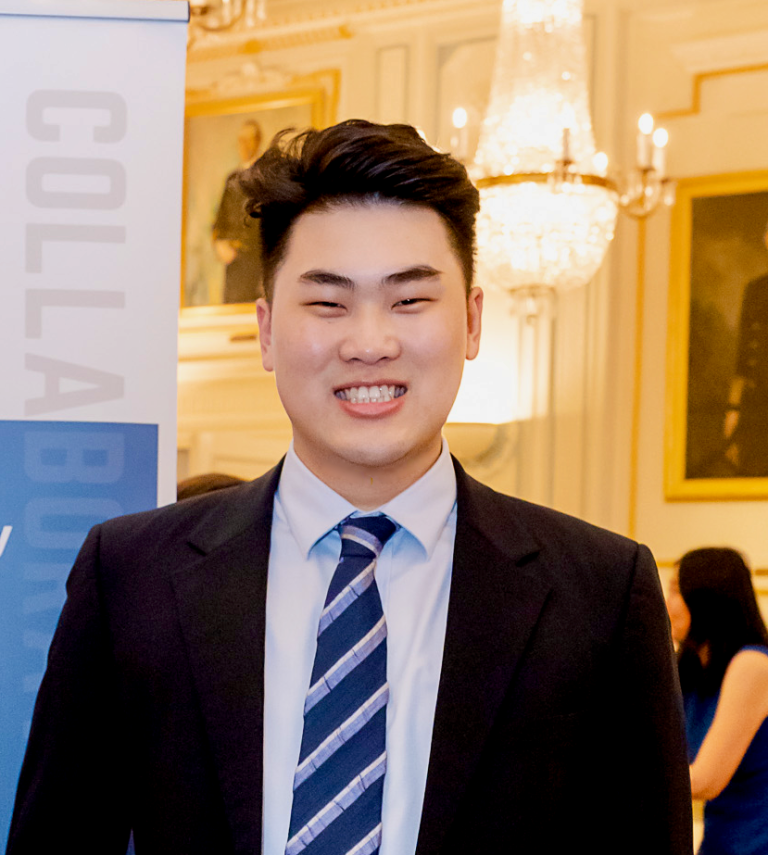Wei Yu Chan
Wei Yu graduated from BSc Neuroscience in 2020 and is works in the Financial Institution Sales team (Africa) at a leading global bank.

17 January 2024
Tell us about your career path, from graduation to where you are now
My career journey started in 2018 when I was fortunate enough to participate in the Spring Week at Citi. During this program, I spent an insightful week at Citi's office in Canary Wharf, where I had the opportunity to learn about the Treasury and Trade Solutions (TTS) business. The experience left a lasting impression on me and sparked my interest in pursuing a career in the financial industry.
A year later, in 2020, I had the privilege of returning to Citi as a Summer Analyst. Despite the challenging circumstances posed by the start of the Covid-19 pandemic, Citi efficiently set us up to work remotely, ensuring that we could continue our roles and contribute to the team from the safety of our homes.
After a rewarding and enriching Summer internship, I was thrilled to be offered a full-time role. Embracing this exciting opportunity, I joined the 2021 Citi TTS Analyst class in London. The journey from intern to full-time Analyst has been both challenging and fulfilling, as I continued to learn and grow within the organization.
Over the past two years, I worked in three rotations across Payments, Client Experience (CX) and eCommerce in the EMEA regional office in London.
I recently relocated to Nairobi for my fourth and final rotation in the Financial Institution Sales Africa team. I will be living and working here for the next 6 months with the goal of immersing myself in a new culture and professional environment. The experience so far has been nothing short of extraordinary.
What are your core duties and what skills are important to your role?
I work with the Africa Financial Institution Sales team to provide cash management and trade finance solutions to financial institutions across the continent, which involves tasks such as client relationship management, deal execution and support, market research, and product knowledge and presentation.
Some key skills that are important are communication, problem-solving, analytical thinking, time management and adaptability.
How did your time at UCL prepare you for the workplace?
The BSc Neuroscience programme equipped me with a deconstructive yet analytical approach to problem solving. Through rigorous coursework and research projects, I developed a solid foundation in research methodologies and data analysis.
Additionally, I took on several leadership roles in student societies, such as Partnerships and Events Director for 180 Degrees Consulting Society, Event Officer for Free Hype, Co-head of Publicity for the Medical Society (Enterprise and Innovation) and student mentor for the Investment Society. My involvement in these societies taught me numerous important skills, such as leadership, organisational and operations management and effective communication.
I was also on the UCL Fencing Men’s First Team and served as its Welfare Officer for a year, which brought me some of the best memories whilst I was at UCL.
UCL Careers and the Investment Society’s Spring mentorship programme were crucial in preparing me for job applications, CV writing and interview preparation. I also attended talks organised by both student societies and UCL Careers on breaking into the Finance industry, which were extremely inspiring and helped frame a large part of my application.
Finally, UCL has a deep network of alumni that are always willing to help. I had the privilege of connecting with a few alumni at UCL events who gave me valuable career advice.
Were there any challenges in your job hunt? How did you overcome these?
Coming from a Science background meant that I had little to no finance knowledge. Most application processes involved numerical and analytical tests and required a basic understanding of finance, which I lacked. Fortunately, UCL Careers and several student societies had a wide range of resources that I tapped into to bring me up to speed.
Top tip for current students:
Go out and get involved and explore opportunities. UCL is full of amazing societies, people and resources, and the only thing keeping you from that is taking the first step and saying yes. Join student societies related to your hobbies and career aspirations. Participate in campus events, workshops, and talks to broaden your knowledge and network with peers and professionals.
Stay Organized and Manage Your Time: university life can be busy and demanding, so staying organised, and managing your time effectively is crucial.
Remember to ask for help: don't hesitate to seek help and support when needed. Whether it's academic challenges, personal struggles, or career guidance, UCL offers various resources and support services, such as counseling services and career advisors. Remember that asking for help is a sign of strength, not weakness, and utilising available resources can positively impact your overall wellbeing and academic success.
 Close
Close

